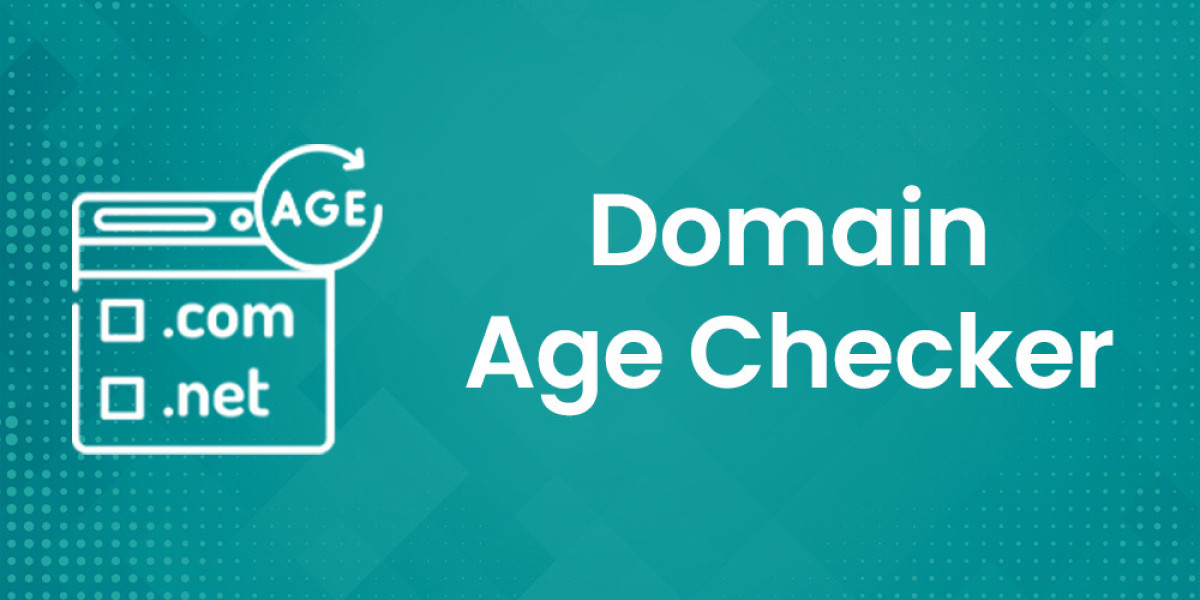This article explores what a Domain Age Checker is, why domain age matters, how to use these tools effectively, and best practices for leveraging domain age data.
What is a Domain Age Checker?
A Domain Age Checker is a tool that provides information about the registration history of a domain name. Specifically, it reveals how long a domain has been active since its initial registration. This tool is useful for website owners, SEO professionals, and digital marketers who want to understand the longevity and potentially the authority of a domain.
Why Domain Age Matters
SEO and Trustworthiness: Domain age is a factor that search engines, like Google, might consider when evaluating the trustworthiness of a website. Older domains are often perceived as more credible and reliable. Search engines may prioritize older domains over newer ones, assuming that they have had more time to build authority and trust.
Competitive Analysis: Knowing the age of a competitor’s domain can provide insights into their history and strategy. An older domain might indicate a longer-standing presence in the market, which could mean established authority and possibly higher rankings in search results.
Link Building and Authority: Domains with a longer history might have accumulated more backlinks over time. Understanding a domain’s age helps in assessing the potential value of its backlink profile, which is a critical factor in SEO.
Market Research: For businesses considering acquiring an existing domain, knowing its age can help assess its value and historical performance. A domain with a long history may have a valuable backlink profile and established traffic.
How to Use a Domain Age Checker
Using a Domain Age Checker is generally a straightforward process. Here’s how you can use these tools effectively:
Select a Domain Age Checker Tool: There are several tools available online for checking domain age. Popular options include:
- Whois Lookup Services: Many Whois lookup tools provide domain registration details, including age.
- SEO Tools: Platforms like SEMrush, Ahrefs, and Moz often include domain age checks as part of their suite of SEO analysis tools.
- Specialized Domain Age Checkers: Websites dedicated solely to domain age checking offer simple and quick results.
Enter the Domain Name: Input the domain name you want to check into the tool. Make sure to use the full domain name, including the top-level domain (TLD) like .com, .net, or .org.
Review the Results: The tool will provide information on the domain's registration date and age. This is typically displayed as the number of years since the domain was first registered.
Analyze and Use the Data: Use the domain age information in conjunction with other metrics like domain authority, backlink profile, and content quality to get a comprehensive view of a website's standing and potential value.
Benefits of Checking Domain Age
Evaluate Website Credibility: An older domain can signify a credible and established website. This can be particularly valuable when considering backlinks, domain authority, and overall trustworthiness.
Assess SEO Potential: Understanding a domain’s age helps in evaluating its SEO potential. Older domains might have had more time to build backlinks and achieve higher search engine rankings.
Strategic Decisions: For businesses looking to purchase or invest in domains, knowing the age can influence your decision. Older domains might be more valuable due to their established history and potential SEO benefits.
Competitor Insights: By analyzing competitors’ domain ages, you can gain insights into their market presence and history, helping you to strategize your own SEO and marketing efforts more effectively.
Best Practices for Leveraging Domain Age Data
Combine Domain Age with Other Metrics: Domain age alone does not provide a complete picture. Combine it with other metrics like domain authority, backlink quality, and traffic data to make informed decisions about a website’s value and SEO potential.
Evaluate the Domain’s History: Consider the domain’s history beyond its age. Look into past ownership changes, penalties, or any negative SEO practices that might have affected its reputation.
Use for Competitive Analysis: Incorporate domain age data into your competitive analysis to understand how long your competitors have been active and their potential advantages in the market.
Monitor Changes Over Time: Track domain age and other metrics over time to observe trends and changes. This can help in understanding the impact of SEO efforts and market dynamics.
Consider Domain Expiry Dates: Besides the registration date, consider checking the expiry date of a domain. This can be useful if you are interested in purchasing an expiring domain with a long history.
Be Cautious with Historical Data: While older domains can be beneficial, not all historical data is positive. Ensure that the domain’s past history is clean and free from penalties or negative SEO practices.
Tools for Checking Domain Age
Here are some popular tools and methods for checking domain age:
Whois Lookup: Services like Whois.net or ICANN WHOIS provide detailed registration information, including the domain creation date. This is often the most direct way to find out the age of a domain.
SEMrush: This SEO tool provides domain age information as part of its domain analytics features, along with other valuable SEO metrics.
Ahrefs: Ahrefs offers domain age checks and additional insights into a domain’s backlink profile, traffic, and overall SEO health.
Moz: Moz provides domain age data through its domain analysis tools, helping you understand the credibility and authority of a website.
Domain Age Checker Websites: Websites like DomainAgeChecker.net offer straightforward services for checking the age of a domain quickly.
Conclusion
A Domain Age Checker is a valuable tool in the arsenal of SEO professionals, digital marketers, and website owners. Understanding a domain’s age provides insights into its credibility, SEO potential, and market presence. By effectively using domain age data in conjunction with other metrics, you can make informed decisions about SEO strategies, competitive analysis, and domain acquisitions. Regularly monitoring domain age and leveraging this information will help you optimize your digital presence, enhance your SEO efforts, and stay ahead in the competitive online landscape.



